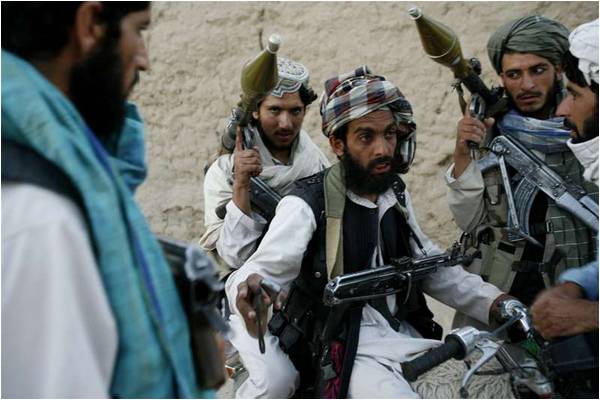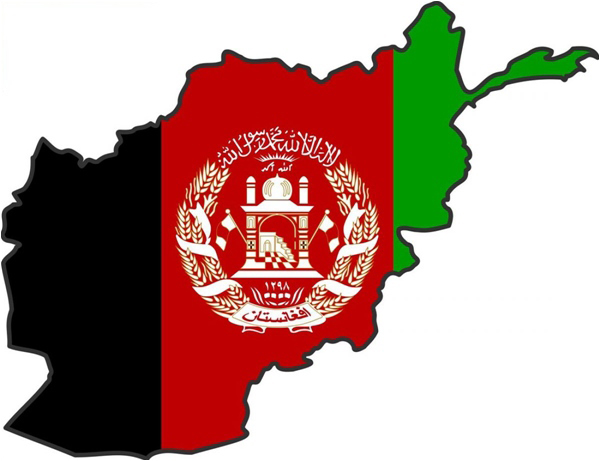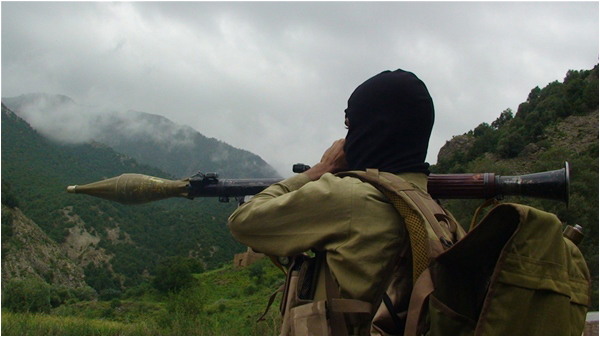
The Afghan Taliban have confirmed the death of their spiritual leader Mullah Muhammad Omar and their Leadership Council has appointed a ‘relatively moderate’ Mullah Akhtar Mansoor as their new emir.
Mullah Omar has been reported dead several times since he went into hiding in 2001 following the US-led coalition’s arrival in Afghanistan. The exact circumstances of the death of the reclusive leader of the Islamist insurgents are not known.
The most recent report about his death emerged on July 29 when the Afghan government announced that it had ‘credible information’ that “Mullah Omar died nearly two years ago in Karachi”. Kabul declined to elaborate.
After the initial denial, the Taliban went on to confirm he had died due to an illness. “The leadership of the Islamic Emirate of Afghanistan and the family of Mullah Omar Mujahid announce that the founder and leader of the Islamic Emirate, as a result of an illness, gave his life and passed away from this temporary world towards the everlasting one,” said a statement released on the Afghan Taliban’s website.
A man of major symbolic significance, Mullah Omar was a charismatic, undisputed spiritual leader of the Taliban in Afghanistan and Pakistan. On April 4, 1996, around 1,500 clerics, dignitaries and militant commanders of Afghanistan approved Mullah Omar as the leader of what they called the “Islamic Emirate”of Afghanistan, and took an oath of allegiance to him. He was given the title of Ameerul Momineen, of the leader of the faithful. Under his command, theTaliban ruled about 90 percent of the country with an iron fist and imposed their version of Islamic law, until the regime was toppled by the US-led forces who invaded Afghanistan after the 9/11 terrorist attacks in 2001.
The government in Kabul has repeatedly accused Pakistan of sheltering Taliban leaders instead of fighting them. The claim that the Afghan Taliban leader died in Karachi has put Pakistan in an awkward position once again. The Taliban deny that. “Despite the military might and intelligence of America and all her allies, he continued to live in Afghanistan,” they say, “and never left Afghanistan even for a single day in the last 14 years, to visit Pakistan or any other country.”
The Fidai Mahaz, a splinter group of the Taliban, also believes Mullah Omar had not been to Pakistan since 2001. “We are confident that after the fall of theIslamic Emirate, Mullah Omar never left Afghanistan,” said Qari Hamza, the spokesman of the group.
Born in 1960 in a religious family of Khakrez district in the Kandahar province of Afghanistan, Mullah Muhammad Omar was a legendary figure who kept all the Taliban groups united under his banner. There were no major divisions in the Afghan Taliban in the last 14 years, apart from a few incidents of revolt bylow level commanders.
The report of his death have surfaced at a time when the Afghan government is in talks with Taliban insurgents in a process facilitated by Pakistan and overseen by the US and China. The death of the Taliban emir has made the future of the peace process uncertain.
On July 31, the Taliban announced Mullah Akhtar Mansoor as their new leader. “Members of the Council of Leaders, saints and scholars – all of them discerning and influential people – decided after a prolonged discussion to appoint the intimate and trusted associate of late Mullah Omar and the former deputy head of the Islamic Emirate, Mullah Akhtar Muhammad Mansoor, as the new leader of the Islamic Emirate,” said the Taliban statement. Mullah Akhtar Mansoor had been the de facto head of the militant group for almost two years. Molvi Haibatullah Akhunzada and Mullah Sirajuddin Haqqani were appointed as his deputies.
Leaders from various parts of the country were sending messages of support and oaths of allegiance to the new emir, the Taliban’s media wing claimed.

But insiders say a power struggle has flared up in the ranks of the Taliban. A group of senior commanders support Mullah Muhammad Yaqoob, the eldest son of Mullah Omar. They wanted him to succeed his father, but did not have enough mandate. Mullah Abdul Manan, the brother of Mullah Omar, said he was yet to pledge allegiance to the new Talian emir. Speaking on the behalf of the family, he said they were waiting for religious leaders to resolve their differences. “We will only accept a leader who has been picked after consultation with all the senior leaders,” he said in an audio message sent to reporters.
Some key Taliban commanders and religious leaders are still opposing the appointment, and have formed their own council asking the new emir to step down until they elect a new chief with consensus, even if it is Mullah Akhtar Mansoor himself.
Meanwhile, the new emir continues to consolidate support from all around Afghanistan. A day after his appointment, the Taliban website ran a 91-second video clip showing hundreds of militant commanders, religious leaders and dignitaries pledging allegiance to their new emir.
Former Guantanamo Bay detainee and key Taliban strategist Mullah Abdul Qayyum Zakir, who had earlier been reported to have opposed the appointment of Mullah Akhtar Mansoor, has now thrown his weight behind the new chief. “I reassure you all that I will exert all my efforts for the Islamic Emirate,” he said in a message. “I will be among the most obedient individuals.”
The leader of the Haqqani network, Molvi Jalaluddin Haqqani, also endorsed the decision. “He has been appointed with complete legitimacy and after due consultation, and he is the most suitable successor to Mullah Omar,” he was quoted as saying in a statement released by the Taliban. “We urge all senior and junior commanders of the Islamic Emirate to obey him.”

Veteran journalist Rahimullah Yousafzai says some disgruntled Taliban leaders are opposing Mullah Akhtar Mansoor, “but well-meaning Taliban elders are trying to resolve the differences to the keep the movement intact and effective”.
Mansoor is believed to be born in the 1960s in the Kandahar province of Afghanistan, and belongs to the Ishaqzai tribe. He was a trusted friend of Mullah Omar and one of the founding members of the Taliban movement. During the Taliban regime, he was the Minister of Aviation. Known to be a “man of jirgas”, he was a supporter of negotiations in all matters.
After his appointment, he released a 33-minutes audio message, calling on fellow militants to “unite against the enemy”, and said he was ready to listen to theirgrievances. “If we remain united, Allah will help us accomplish our mission. Our disunity will displease Allah and delight our enemies, and it will also increase our difficulties,” he said.
“Ignore the rumors about rifts in the Mujahideen,” he told his followers. “It is a ploy of the enemy to divert our attention from our goal of implementing Islamiclaw through jihad. We are close to victory. Don’t let our enemies create differences amongst us at this critical hour.”
He did not comment on the recently initiated peace talks with the Afghan government. On the contrary, he surprised many when he said jihad was the only solution to the problems of Afghanistan. “Jihad will continue until the implementation of Islamic Shariah in the country,” he said. “Our enemies say that peace can be restored through deals and dialogue, but they are completely wrong.”
Rahimullah Yousafzai says that is just political maneuvering. Mullah Akhtar Mansoor has always supported peace talks, he says, and representatives of Afghan Taliban and the Afghan government met in Murree while he was the de facto head of the Taliban. “Some warring commanders in Afghanistan were opposing the dialogue, and the statement might be an effort to win their support,” he believes.
Afghan journalist Sami Yousafzai is also optimistic. “Mullah Akhtar Mansoor will have to resume the peace talks eventually,” he says, “but not at this time. He has to consolidate his control before making decisions on such sensitive issues.” It take from six months to year for the dialogue to resume, he says, “withserious diplomatic efforts and sincerity by Islamabad.”
If the dialogue does resume, veteran journalist Tahir Khan says it will be much more productive. “Mullah Akhtar Mansoor is accessible. Mullah Omar wasalways in hiding, and even the Taliban Shura approached him via a messenger,” he says. But the Afghan Taliban had blind faith in Mullah Omar. Mansoor will face oppositions from various quarters, making his job difficult.
“If the top leaders of the Taliban will not resolve their issues and gaps amongst them will widen, their foot soldiers could switch loyalties and join other groups,such as ISIS,” he says.
Tahir Ali is an Islamabad-based journalist
Email: tahirafghan@gmail.com
Twitter: @tahirafghan
Reklama: Team building Vilnius, vadovų atranka, Executive Search Lithuania, lyderystės mokymai vadovams, koučingas, kompetencijų vertinimas, darbuotojų paieška, komandos formavimas Primum Esse
Mullah Omar has been reported dead several times since he went into hiding in 2001 following the US-led coalition’s arrival in Afghanistan. The exact circumstances of the death of the reclusive leader of the Islamist insurgents are not known.
The most recent report about his death emerged on July 29 when the Afghan government announced that it had ‘credible information’ that “Mullah Omar died nearly two years ago in Karachi”. Kabul declined to elaborate.
After the initial denial, the Taliban went on to confirm he had died due to an illness. “The leadership of the Islamic Emirate of Afghanistan and the family of Mullah Omar Mujahid announce that the founder and leader of the Islamic Emirate, as a result of an illness, gave his life and passed away from this temporary world towards the everlasting one,” said a statement released on the Afghan Taliban’s website.
A power struggle has erupted in the ranks of the Taliban
A man of major symbolic significance, Mullah Omar was a charismatic, undisputed spiritual leader of the Taliban in Afghanistan and Pakistan. On April 4, 1996, around 1,500 clerics, dignitaries and militant commanders of Afghanistan approved Mullah Omar as the leader of what they called the “Islamic Emirate”of Afghanistan, and took an oath of allegiance to him. He was given the title of Ameerul Momineen, of the leader of the faithful. Under his command, theTaliban ruled about 90 percent of the country with an iron fist and imposed their version of Islamic law, until the regime was toppled by the US-led forces who invaded Afghanistan after the 9/11 terrorist attacks in 2001.
The government in Kabul has repeatedly accused Pakistan of sheltering Taliban leaders instead of fighting them. The claim that the Afghan Taliban leader died in Karachi has put Pakistan in an awkward position once again. The Taliban deny that. “Despite the military might and intelligence of America and all her allies, he continued to live in Afghanistan,” they say, “and never left Afghanistan even for a single day in the last 14 years, to visit Pakistan or any other country.”
The Fidai Mahaz, a splinter group of the Taliban, also believes Mullah Omar had not been to Pakistan since 2001. “We are confident that after the fall of theIslamic Emirate, Mullah Omar never left Afghanistan,” said Qari Hamza, the spokesman of the group.
"Jihad will continue until the implementation of Islamic law"
Born in 1960 in a religious family of Khakrez district in the Kandahar province of Afghanistan, Mullah Muhammad Omar was a legendary figure who kept all the Taliban groups united under his banner. There were no major divisions in the Afghan Taliban in the last 14 years, apart from a few incidents of revolt bylow level commanders.
The report of his death have surfaced at a time when the Afghan government is in talks with Taliban insurgents in a process facilitated by Pakistan and overseen by the US and China. The death of the Taliban emir has made the future of the peace process uncertain.
On July 31, the Taliban announced Mullah Akhtar Mansoor as their new leader. “Members of the Council of Leaders, saints and scholars – all of them discerning and influential people – decided after a prolonged discussion to appoint the intimate and trusted associate of late Mullah Omar and the former deputy head of the Islamic Emirate, Mullah Akhtar Muhammad Mansoor, as the new leader of the Islamic Emirate,” said the Taliban statement. Mullah Akhtar Mansoor had been the de facto head of the militant group for almost two years. Molvi Haibatullah Akhunzada and Mullah Sirajuddin Haqqani were appointed as his deputies.
Leaders from various parts of the country were sending messages of support and oaths of allegiance to the new emir, the Taliban’s media wing claimed.

But insiders say a power struggle has flared up in the ranks of the Taliban. A group of senior commanders support Mullah Muhammad Yaqoob, the eldest son of Mullah Omar. They wanted him to succeed his father, but did not have enough mandate. Mullah Abdul Manan, the brother of Mullah Omar, said he was yet to pledge allegiance to the new Talian emir. Speaking on the behalf of the family, he said they were waiting for religious leaders to resolve their differences. “We will only accept a leader who has been picked after consultation with all the senior leaders,” he said in an audio message sent to reporters.
Some key Taliban commanders and religious leaders are still opposing the appointment, and have formed their own council asking the new emir to step down until they elect a new chief with consensus, even if it is Mullah Akhtar Mansoor himself.
Meanwhile, the new emir continues to consolidate support from all around Afghanistan. A day after his appointment, the Taliban website ran a 91-second video clip showing hundreds of militant commanders, religious leaders and dignitaries pledging allegiance to their new emir.
Former Guantanamo Bay detainee and key Taliban strategist Mullah Abdul Qayyum Zakir, who had earlier been reported to have opposed the appointment of Mullah Akhtar Mansoor, has now thrown his weight behind the new chief. “I reassure you all that I will exert all my efforts for the Islamic Emirate,” he said in a message. “I will be among the most obedient individuals.”
The leader of the Haqqani network, Molvi Jalaluddin Haqqani, also endorsed the decision. “He has been appointed with complete legitimacy and after due consultation, and he is the most suitable successor to Mullah Omar,” he was quoted as saying in a statement released by the Taliban. “We urge all senior and junior commanders of the Islamic Emirate to obey him.”

Veteran journalist Rahimullah Yousafzai says some disgruntled Taliban leaders are opposing Mullah Akhtar Mansoor, “but well-meaning Taliban elders are trying to resolve the differences to the keep the movement intact and effective”.
Mansoor is believed to be born in the 1960s in the Kandahar province of Afghanistan, and belongs to the Ishaqzai tribe. He was a trusted friend of Mullah Omar and one of the founding members of the Taliban movement. During the Taliban regime, he was the Minister of Aviation. Known to be a “man of jirgas”, he was a supporter of negotiations in all matters.
After his appointment, he released a 33-minutes audio message, calling on fellow militants to “unite against the enemy”, and said he was ready to listen to theirgrievances. “If we remain united, Allah will help us accomplish our mission. Our disunity will displease Allah and delight our enemies, and it will also increase our difficulties,” he said.
“Ignore the rumors about rifts in the Mujahideen,” he told his followers. “It is a ploy of the enemy to divert our attention from our goal of implementing Islamiclaw through jihad. We are close to victory. Don’t let our enemies create differences amongst us at this critical hour.”
He did not comment on the recently initiated peace talks with the Afghan government. On the contrary, he surprised many when he said jihad was the only solution to the problems of Afghanistan. “Jihad will continue until the implementation of Islamic Shariah in the country,” he said. “Our enemies say that peace can be restored through deals and dialogue, but they are completely wrong.”
Rahimullah Yousafzai says that is just political maneuvering. Mullah Akhtar Mansoor has always supported peace talks, he says, and representatives of Afghan Taliban and the Afghan government met in Murree while he was the de facto head of the Taliban. “Some warring commanders in Afghanistan were opposing the dialogue, and the statement might be an effort to win their support,” he believes.
Afghan journalist Sami Yousafzai is also optimistic. “Mullah Akhtar Mansoor will have to resume the peace talks eventually,” he says, “but not at this time. He has to consolidate his control before making decisions on such sensitive issues.” It take from six months to year for the dialogue to resume, he says, “withserious diplomatic efforts and sincerity by Islamabad.”
If the dialogue does resume, veteran journalist Tahir Khan says it will be much more productive. “Mullah Akhtar Mansoor is accessible. Mullah Omar wasalways in hiding, and even the Taliban Shura approached him via a messenger,” he says. But the Afghan Taliban had blind faith in Mullah Omar. Mansoor will face oppositions from various quarters, making his job difficult.
“If the top leaders of the Taliban will not resolve their issues and gaps amongst them will widen, their foot soldiers could switch loyalties and join other groups,such as ISIS,” he says.
Tahir Ali is an Islamabad-based journalist
Email: tahirafghan@gmail.com
Twitter: @tahirafghan
Reklama: Team building Vilnius, vadovų atranka, Executive Search Lithuania, lyderystės mokymai vadovams, koučingas, kompetencijų vertinimas, darbuotojų paieška, komandos formavimas Primum Esse

